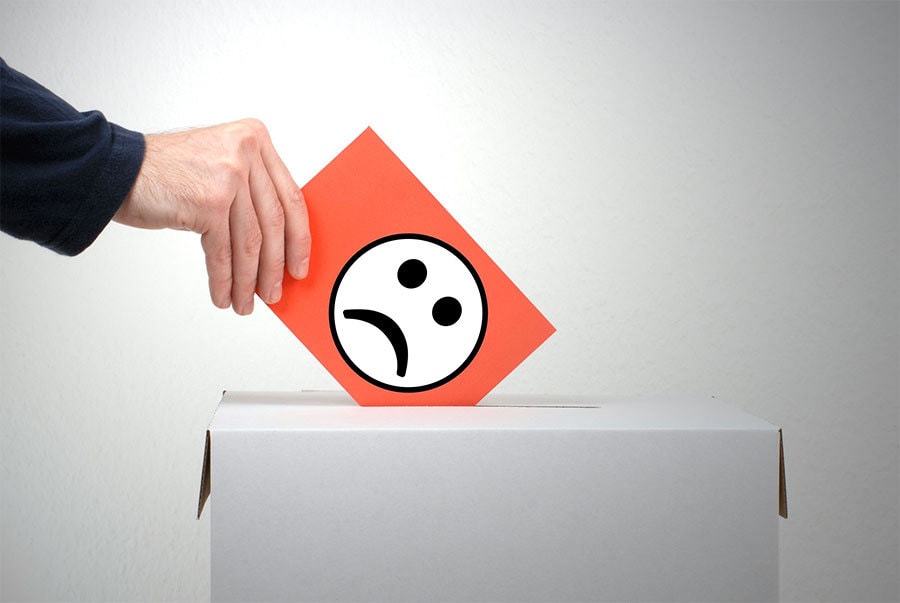Today, we are conditioned to read and believe online reviews whenever possible. Whether we’re choosing a hotel, buying a product or hiring a professional for a service, we are told to do our own research to ensure we are making the right decision. After all, reviews and feedback from past customers can give a real insight into what to expect.
Most of us will have read a bad online review and thought twice about using a product or service. So, it should come as no surprise that online reviews can have a huge impact on a business’ reputation.
From eBay to Amazon and Google to TripAdvisor, bad reviews, low ratings and negative comments can affect leads and sales. Not only can they deter new customers from making a purchase or getting in touch with an enquiry, but they can also encourage existing customers to look elsewhere for a similar business. As you can see, bad reviews don’t just impact the customer who is leaving the review, they also have a knock-on effect on others.
The impact of bad reviews
In order to fully understand bad reviews and how to react to them, it’s important to acknowledge the problems they cause. Bad reviews create a number of issues for a business, many of which are not easy to solve. For example, having to deal with negative feedback can cause a great deal of stress for a business owner. Staff morale can also suffer if team members feel as though their hard work isn’t good enough.
One of the biggest problems caused by bad reviews is the impact they can have on a company’s digital reputation. Many people judge a business based on its digital reputation, and if the first thing they see is poor feedback or negativity, they are likely to look elsewhere, giving competitors the upper hand.
Even if a customer does decide to use a business, a poor online reputation will cause uncertainty. Instead of enjoying using a business’ product or service, they will have doubt in their minds from the start. As a business owner, this is something you should try and avoid wherever possible.

Negative reviews can hurt a business, but responding in a positive manner should prevent any long-term damage
It’s not all bad
Bad reviews aren’t the end of the world – even though it may feel like it. As long as you take the right steps towards fixing the problems, you can limit the damage to your business. Consider the issues that are being raised and define what needs to be done in order to solve them. Then, repair the damage. Though this may take time, effort and money, it is priceless in terms of damage control and business improvement.
Additionally, it’s important not to become annoyed or angry at the person who is leaving the bad review, even though you may not agree with what they are saying. Instead, find empathy for them and consider why they feel the way they do. Was there a failure on your part? Did the customer expect something different? Is there a genuine issue with your product or service? Could improvements be required? Are other customers likely to agree? Knowing why and how a person feels is a good way to gain an insight into how you can work towards preventing bad reviews in the future.
Bad reviews aren’t the end of the world – even though it may feel like it. As long as you take the right steps towards fixing the problems, you can limit the damage to your business.
Always acknowledge the bad review and respond to the individual who left it; let them know that you are taking their complaint seriously and are working towards fixing the problem. If the review has been left on social media or an online review website, it’s quick and easy to make a public response. This helps to repair your online reputation as it shows other customers that you’re a responsible business owner who is keen to make improvements where necessary.
Review sites are another form of social media. You’re not simply responding to the person who wrote it, but everyone who is reading it, and that could be thousands of people. Most of us accept that things can go wrong, service can be poor or products can become faulty, but we need reassurance that someone cares – and cares enough to put a situation right. Through clever and careful responses, you can turn a negative experience into an incredible act of compassion – and in turn a PR opportunity.
Finding the silver lining
Though bad reviews may not seem like a positive, they can be turned into useful learning experiences. For example, you could transform them into case studies and use them to build better systems, provide better training and create better products. If the review mentioned poor customer service or a problem with staff, use what was said to train employees in specific areas. Last but not least, you can use the review to make stronger connections with future customers.
Rather than becoming stressed and annoyed at bad reviews, find the silver lining and use them to your advantage.
About the author
Joy Zarine is a hospitality and marketing consultant, and author of ‘The Five Star Formula: Create Incredible Guest Experiences That Lead to Five Star Reviews and an Award-Winning Hospitality Business’. Find out more at www.joyzarine.com.






These cookies are set by a range of social media services that we have added to the site to enable you to share our content with your friends and networks. They are capable of tracking your browser across other sites and building up a profile of your interests. This may impact the content and messages you see on other websites you visit.
If you do not allow these cookies you may not be able to use or see these sharing tools.